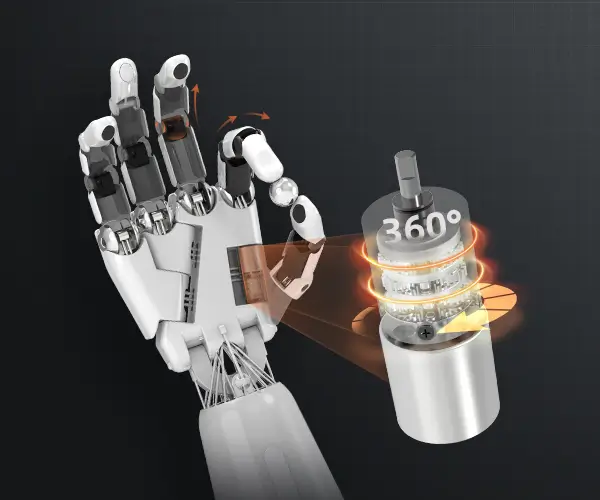When it comes to automation and precision control, the choice between stepper motors and servo motors is a hot topic. But what really sets them apart, and which one fits your application best? Let's dive into the core differences and see what makes each motor tick.

Imagine you're building a 3D printer or CNC machine—those tiny movements demand precision. Stepper motors are known for their simplicity and reliability. They move in precise steps, usually 200 per revolution, which makes controlling position straightforward without the need for complex feedback systems. It's like walking a straight line, counting your steps; no GPS needed. That makes them a favorite for positioning tasks where high torque at low speeds is required.
Now, servo motors are different beasts altogether. They typically have encoders built-in, which means they continuously check their position and make real-time adjustments. Picture a GPS-guided drone that corrects its flight path on the fly—servo motors do the same for your machinery. They can handle higher speeds and more demanding dynamic movements. For precision, they often outperform steppers because they can compensate for external forces or minor misalignments during operation.
But here's the catch—cost. Stepper motors are generally cheaper, easier to set up, and don’t need complex controllers. You connect them, send commands, and you're pretty much done. Servo systems, on the other hand, require more sophisticated controllers and feedback loops, which can inflate the budget but also deliver more accurate and smoother motion.
Think about durability and load. If your project involves heavy loads or needs rapid changes in direction, servo motors tend to hold up better. They’re built for performance under tough conditions. But if your task is more static, like turning a conveyor belt at a steady pace, steppers do the job just fine.
Here’s a quick question that might cross your mind: Is a stepper enough, or do I need a servo? Well, if you’re working on something where size, cost, and ease of use matter most, steppers could be the way to go. But if your application demands lightning-fast responses, high accuracy under load, or complex movement patterns, it’s worth considering a servo.
The thing is, choosing between these two isn’t just about what they do but how they do it. When you want something that’s simple, cost-effective, and reliable, a stepper might just fit the bill. If you’re aiming for top-tier performance, adaptability, and longevity under demanding conditions, a servo system stands out.
Looking for a partnership that provides both? Well, KPOWER has got you covered. They offer a range of motors tailored to your needs—no fuss, no fluff. Whether it’s precision, speed, or load-carrying capacity, their solutions are designed to keep your project rolling smoothly. That’s the kind of flexibility that makes a difference in real-world applications.
So, next time you brainstorm about automation, think not just about what the motor does but how it does it, and how that aligns with your goals. It’s all about finding the perfect match to keep things moving just right.
Established in 2005, Kpower has been dedicated to a professional compact motion unit manufacturer, headquartered in Dongguan, Guangdong Province, China. Leveraging innovations in modular drive technology, Kpower integrates high-performance motors, precision reducers, and multi-protocol control systems to provide efficient and customized smart drive system solutions. Kpower has delivered professional drive system solutions to over 500 enterprise clients globally with products covering various fields such as Smart Home Systems, Automatic Electronics, Robotics, Precision Agriculture, Drones, and Industrial Automation.




































